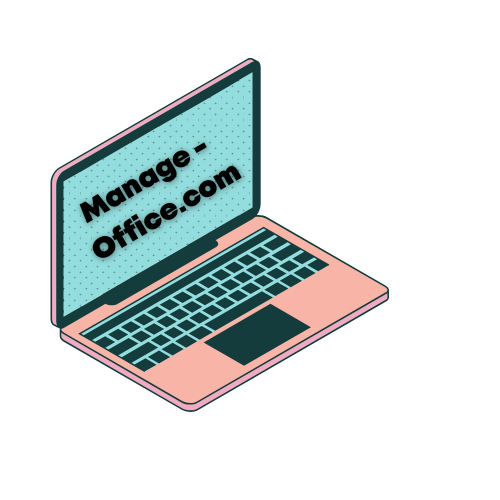From Chaos to Clarity –
Your Guide to
Workplace Efficiency

Work Smarter, Stay Organized, Achieve More.

Work Smarter, Stay Organized, Achieve More.




A well-maintained commercial HVAC system is essential for any office environment. Heating, ventilation, and air conditioning (HVAC) systems control the temperature, air quality, and overall comfort within a workplace. Without proper maintenance, HVAC systems can become inefficient, leading to costly breakdowns, decreased employee productivity, and uncomfortable working conditions. This is why having a commercial HVAC service contract is a smart investment for any business.
HVAC units, especially in commercial settings, undergo significant wear and tear. Over time, components can degrade, filters become clogged, and minor issues can turn into major, costly repairs. Regular maintenance helps prevent these problems by ensuring the system runs smoothly year-round. Here are some of the key benefits:
Instead of waiting for issues to arise and calling for costly emergency repairs, having an HVAC maintenance contract in place ensures your office’s system remains in top condition year-round. Here’s why a service contract is a game-changer:
We rely on a top-tier commercial HVAC company that goes above and beyond in providing professional and cost-effective maintenance services. Their expertise and commitment to customer satisfaction set them apart from the competition. Whether it’s routine maintenance, emergency repairs, or full system replacements, they have proven time and again to be reliable and efficient. We use Quick Fix Air Repair Commercial HVAC repair and maintence.
If your office doesn’t have an HVAC maintenance contract, now is the time to consider one. Regular maintenance keeps your system running smoothly, reduces costs, improves air quality, and ensures a comfortable work environment for employees. Investing in a trusted commercial HVAC provider with a comprehensive service contract is a proactive step that saves time, money, and stress in the long run. Don’t wait for an emergency—ensure your office is protected today!

Working in a fast-paced environment can be exciting, rewarding, and full of opportunities—but it can also be mentally and physically draining if you don’t manage your workload and stress levels effectively. I know this all too well. Early in my career, I found myself constantly overworked, stressed, and exhausted, pushing myself to meet deadlines and exceed expectations. It wasn’t long before I started feeling the effects of burnout—low motivation, constant fatigue, and an overwhelming sense of exhaustion.
The truth is, burnout doesn’t happen overnight. It builds up over time when we ignore our physical, mental, and emotional well-being. Fortunately, I’ve learned how to manage my workload and prioritize my well-being without sacrificing productivity. If you’re feeling overwhelmed at work, here are practical strategies to help you avoid burnout and maintain a healthy work-life balance.
One of the most important things I’ve learned is that burnout doesn’t just mean feeling tired. It comes with a range of symptoms, including:
❌ Constant exhaustion, even after a good night’s sleep
❌ Difficulty focusing or completing tasks efficiently
❌ Increased frustration or irritability with coworkers or tasks
❌ A sense of detachment from work or loss of motivation
❌ Physical symptoms like headaches, muscle tension, or insomnia
If you notice any of these warning signs, it’s time to take action before burnout fully sets in. Ignoring burnout only makes it worse and can affect your performance, mental health, and overall well-being.
In a high-pressure work environment, it’s easy to feel like you have to say yes to everything. I used to take on every task that came my way, thinking it would make me look like a dedicated employee. Instead, it left me feeling overwhelmed and constantly stretched too thin.
✅ Learn to say no – It’s okay to decline extra work if you’re already at capacity.
✅ Manage expectations – If a task is unrealistic within a deadline, communicate early.
✅ Stick to your working hours – Avoid checking emails or completing tasks after hours unless absolutely necessary.
✅ Take breaks – Short breaks throughout the day improve focus and prevent mental fatigue.
By setting boundaries, you can protect your time and energy, allowing yourself to work efficiently without reaching burnout.
One of the biggest contributors to burnout is feeling like there’s never enough time to get everything done. I used to jump from one task to another, constantly feeling like I was behind. The solution? Better time management and prioritization.
🕒 The Eisenhower Matrix – Sort tasks into four categories: urgent/important, urgent/not important, important/not urgent, and neither. Focus on what truly matters.
🕒 Time Blocking – Set specific time slots for focused work, emails, and meetings to avoid multitasking.
🕒 The Pomodoro Technique – Work in 25-minute focused sessions with 5-minute breaks in between.
🕒 Use productivity tools – Apps like Trello, Asana, or Notion help manage and prioritize tasks.
When I started using these methods, I noticed a significant decrease in my stress levels because I felt more in control of my workload.
Work isn’t the only factor that contributes to burnout—neglecting your personal well-being plays a major role too. I used to skip meals, work late into the night, and ignore my need for exercise, thinking that “I didn’t have time” for those things. But I quickly learned that burnout is inevitable when you don’t take care of yourself.
🥗 Eat nutritious meals – Skipping meals or relying on junk food drains energy and productivity.
🏃 Move your body – A simple walk, yoga session, or gym workout can boost focus and reduce stress.
😴 Prioritize sleep – Lack of sleep makes burnout worse. Aim for 7-8 hours per night.
🧘 Practice mindfulness or meditation – Even 5 minutes of deep breathing can lower stress levels.
When I started prioritizing my health, I had more energy, improved focus, and better resilience to workplace stress.
Burnout is often worsened by a lack of support in the workplace. If you feel like you’re struggling alone, it’s time to build a network of colleagues and communicate openly.
🤝 Talk to your manager – If your workload is too much, discuss possible solutions.
🤝 Lean on coworkers – Collaborate with your team and don’t be afraid to ask for help.
🤝 Engage in workplace activities – Building relationships with colleagues reduces stress and makes work more enjoyable.
🤝 Seek professional support – If burnout becomes overwhelming, talking to a career coach or therapist can help.
Having a strong support system at work makes it easier to navigate challenges and maintain a positive mindset.
One of the most effective ways I’ve avoided burnout is by ensuring that work doesn’t consume my entire life. When work becomes your only focus, stress builds up, and burnout follows.
🌍 Pursue hobbies – Reading, painting, cooking, or any creative outlet helps shift your focus away from work.
📅 Schedule downtime – Just as you schedule meetings, schedule time for yourself.
🎉 Spend time with loved ones – Socializing and laughter help relieve workplace stress.
🧳 Take vacations (or even short breaks) – Even a weekend getaway or a single mental health day can help reset your energy.
The more I embraced life outside of work, the less burnout became a problem.
Burnout is real, and it can be crippling if left unchecked. However, by recognizing the warning signs, setting boundaries, managing time effectively, prioritizing health, building support systems, and making time for personal interests, you can prevent burnout and stay energized and productive in your career.
I’ve learned that taking care of myself is just as important as taking care of my work responsibilities. By implementing these strategies, I’ve been able to maintain a fulfilling career without sacrificing my well-being—and you can too!
How do you manage stress in a fast-paced work environment? Let’s discuss in the comments! 🚀✨

Over the years, I’ve learned that writing professional emails is an essential skill in any office setting. Whether you’re communicating with colleagues, clients, or managers, the way you compose your emails can impact how you’re perceived and how effectively your message is received.
At first, I used to overthink every email, unsure if my tone was right or if I was being too formal or too casual. But after practicing and refining my approach, I realized that professional email writing is an art—one that balances clarity, professionalism, and tone.
If you want to write emails that are clear, polished, and effective, here’s what you need to know.
The subject line is the first thing the recipient sees, so it should summarize the purpose of your email in a few words. A vague or overly complicated subject can lead to confusion, or worse, an unread email.
✅ Good Subject Lines:
❌ Weak Subject Lines:
A strong subject line ensures that your email gets opened and understood quickly.
Your greeting sets the tone for your email. The key is to be polite and professional, but also match the level of formality depending on the recipient.
✅ Formal Greetings (for clients, senior executives):
✅ Casual but Professional Greetings (for colleagues, teammates):
Avoid overly casual greetings like “Hey” or “Yo” in professional emails unless you have an informal relationship with the recipient.
No one likes long-winded emails that take forever to get to the point. Keep your message clear, concise, and structured.
✅ Best Practice:
❌ Avoid:
Example:
Subject: Meeting Request: Project Update – March 15
Hi [Recipient’s Name],
I hope you’re doing well. I’d like to schedule a meeting to discuss the latest updates on [Project Name]. Would you be available on March 15 at 2 PM? Let me know if that works for you.
Looking forward to your response.
Best,
[Your Name]
This email is direct, polite, and professional—without unnecessary fluff.
Your tone should always be respectful and professional, but it can be adjusted based on the recipient.
Things to Avoid in Professional Emails:
❌ ALL CAPS (it feels like yelling).
❌ Too many exclamation marks (!!!).
❌ Unclear or sarcastic language that could be misinterpreted.
Even if you’re addressing an issue or requesting something, always maintain professionalism:
🔹 Instead of “Why haven’t you responded yet?”, say:
“I wanted to follow up on my previous email regarding [Topic]. Please let me know if you need any further information.”
A respectful tone helps build stronger workplace relationships.
A strong closing ensures that your recipient knows what to do next.
✅ Call to Action Examples:
✅ Professional Closings:
❌ Avoid overly casual closings like:
Example:
Looking forward to your response.
Best regards,
[Your Name]
This makes it clear and professional, leaving no room for misinterpretation.
I can’t tell you how many times I’ve caught typos and mistakes right before hitting “Send”. Always take a few seconds to:
✔ Check for typos and grammar errors.
✔ Ensure names and details are correct.
✔ Read the email out loud to check for awkward phrasing.
A polished email reflects professionalism and attention to detail.
Writing a great professional email is all about clarity, professionalism, and respect for the recipient’s time. Whether you’re requesting information, setting up a meeting, or responding to a colleague, keeping your emails concise, structured, and professional will help you communicate effectively.
Mastering the art of professional email writing has made my work life so much easier, and I know it can do the same for you. Start practicing these tips today, and you’ll notice a huge difference in how your emails are received! 🚀📧

Working in an office—whether remotely, in a hybrid setup, or in a traditional workspace—requires a combination of technical expertise, communication skills, and time management to thrive. Over the years, I’ve learned that success in an office environment isn’t just about getting tasks done; it’s about efficiency, adaptability, and professionalism.
Whether you’re just starting your career or looking to sharpen your skills, mastering these key office skills can make a huge difference in your productivity, workplace relationships, and long-term career growth. Here are the top skills every office professional should develop to excel in any workplace setting.
One of the most valuable skills I’ve developed is time management. With deadlines, meetings, and a never-ending list of tasks, it’s easy to feel overwhelmed. The key is to prioritize effectively and manage your time wisely.
✅ Use the Eisenhower Matrix to categorize tasks by urgency and importance.
✅ Set daily and weekly goals to stay on track.
✅ Utilize time-blocking techniques to focus on specific tasks without distractions.
✅ Leverage productivity tools like Trello, Asana, or Microsoft Planner to keep work organized.
By mastering time management, I’ve not only reduced stress but also increased efficiency and job satisfaction.
Clear and professional communication—whether through emails, meetings, or instant messages—is essential for smooth office operations. I’ve seen firsthand how poor communication leads to confusion, missed deadlines, and workplace frustration.
📝 Email Etiquette: Keep emails concise, polite, and to the point. Always proofread before hitting send.
🎤 Verbal Communication: Speak confidently in meetings and actively listen to colleagues.
💬 Instant Messaging (Slack, Teams, etc.): Be professional, even in informal chat settings—clarity is key.
👥 Presentation Skills: Whether presenting to a team or a client, practice clear, engaging delivery.
Good communication ensures collaboration runs smoothly and minimizes misunderstandings.
Office environments change constantly—new policies, technology, or unexpected challenges are inevitable. One thing I’ve learned is that being adaptable makes all the difference. Instead of resisting change, I’ve embraced it by staying curious and solution-oriented.
🔹 Stay open to new processes and technologies—continuous learning is key.
🔹 Approach problems with a solutions mindset instead of getting frustrated.
🔹 Be flexible when priorities shift—adjust your workflow accordingly.
🔹 Learn to work efficiently in both team-based and independent settings.
The more adaptable you are, the easier it is to thrive in any work environment.
A well-organized workspace and structured workflow make a massive impact on productivity. I used to struggle with keeping track of files and tasks, but once I developed better organizational habits, my efficiency skyrocketed.
📂 Digital File Management: Use consistent naming conventions and folders for easy access.
🗂️ Physical Workspace: Keep your desk clutter-free and organize paperwork effectively.
📅 Calendaring & Scheduling: Use tools like Google Calendar or Outlook to track deadlines and meetings.
✅ Task Lists: Break big projects into smaller tasks and use to-do lists or project management software.
Good organization saves time, reduces stress, and helps you stay in control of your workload.
In today’s workplace, tech skills are non-negotiable. I’ve had to continuously adapt to new office software, collaboration tools, and digital platforms to stay efficient and relevant.
💻 Microsoft Office (Word, Excel, PowerPoint, Outlook) – Essential for reports, spreadsheets, and presentations.
📊 Google Workspace (Docs, Sheets, Drive) – Great for real-time collaboration and file storage.
🖥 Project Management Tools (Asana, Trello, Monday.com) – Helps teams track tasks efficiently.
🔐 Cybersecurity Awareness – Understanding phishing scams, data security, and safe file-sharing is crucial.
The more comfortable you are with technology, the more valuable you become in any workplace.
Professionalism is about how you present yourself, interact with others, and handle workplace situations. Regardless of job title, maintaining a professional demeanor builds credibility and respect.
✅ Be punctual – Arriving on time (or early) shows reliability.
✅ Respect others’ time – Keep meetings and emails focused and efficient.
✅ Dress appropriately – Even in casual offices, maintain a neat and professional look.
✅ Handle conflicts maturely and professionally – Avoid office drama and focus on solutions.
A professional attitude sets the foundation for career growth and leadership opportunities.
Working in an office isn’t just about technical skills—it’s also about knowing how to work well with others. Emotional intelligence (EQ) plays a huge role in collaboration, leadership, and workplace relationships.
❤️ Self-awareness: Understand your emotions and how they impact your work.
🤝 Empathy: Listen and consider different perspectives before reacting.
📢 Constructive Feedback: Give and receive feedback professionally.
🙌 Collaboration: Be a team player—offer help and contribute positively.
A high EQ helps you navigate workplace challenges while maintaining positive relationships with colleagues.
Mastering these office skills isn’t just about doing your job well—it’s about growing as a professional. The workplace is constantly evolving, and the more adaptable, tech-savvy, and organized you are, the better you’ll thrive in any office setting.
By focusing on time management, communication, adaptability, and professionalism, you’ll set yourself apart and position yourself for career success.
Which of these skills have made the biggest impact on your work life? Let’s discuss in the comments! 🚀🏢✨

214 Bayview Plaza, Suite 305
Wilmington, DE 19801

302-867-4293

Lexi@Manage-Office.com
